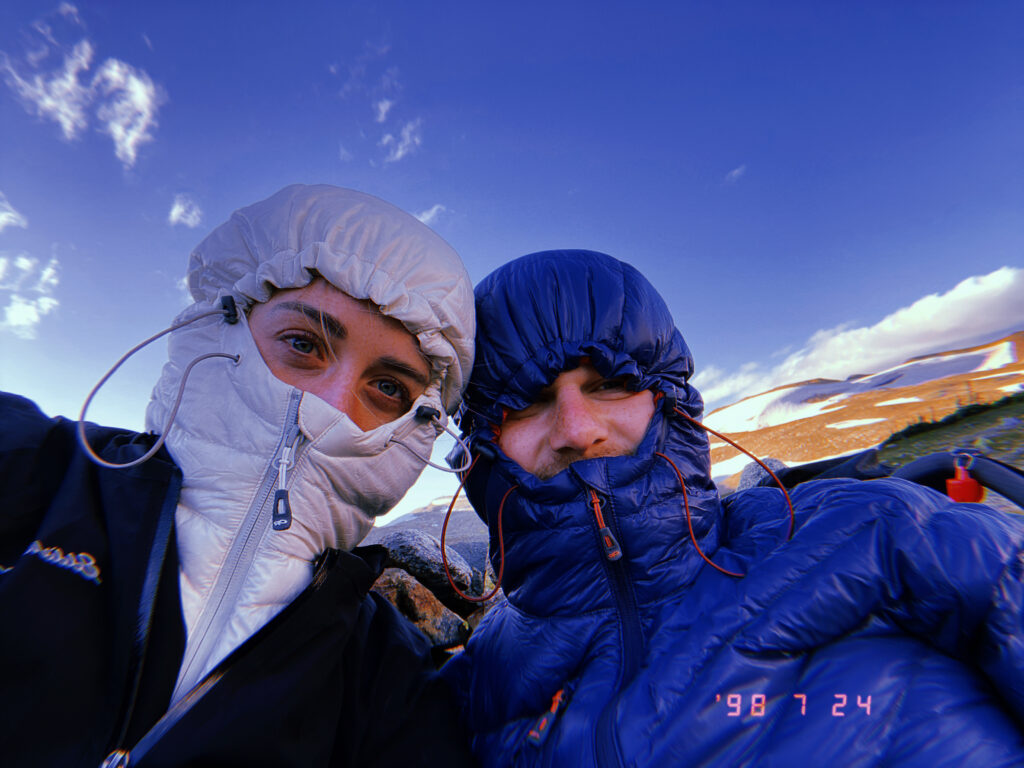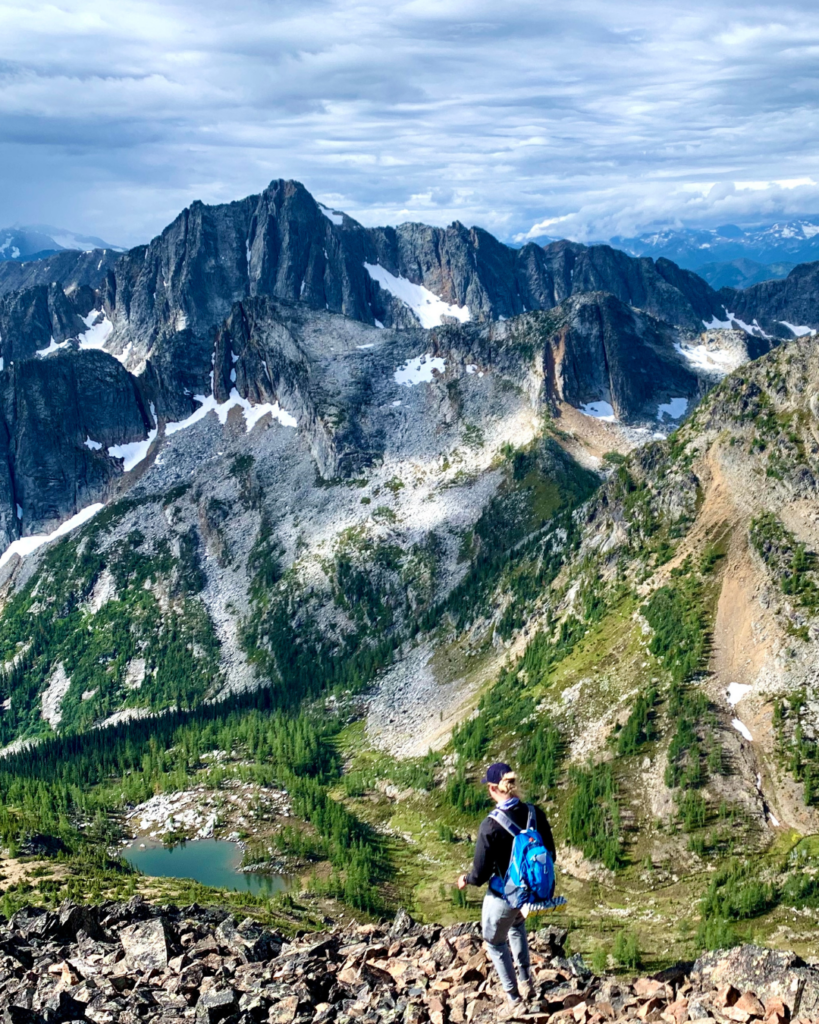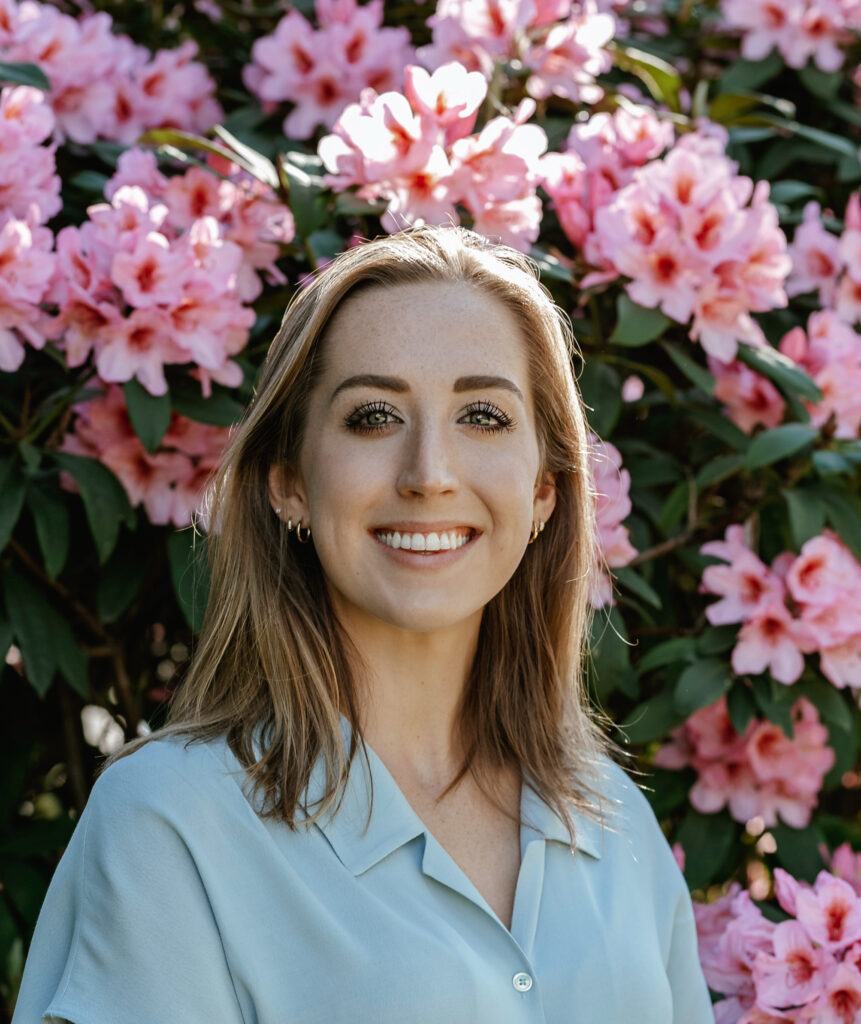The Importance of Adaptation: Chatting with Mentor Nicole Bailey
This is Nicole Bailey. She is a mentor of Kayla Wen (Cohort 2021), a hiking enthusiast, and long-time lover of all things science. Nicole graduated with a Bachelor of Science from the University of British Columbia (UBC) in 2021 where she focused her studies in Neuroscience and Cognitive Science. Most recently, Nicole has been busy pursuing a Masters of Science in Experimental Medicine at UBC and adventuring through beautiful landscapes whenever she has an opportunity. Nicole is a Research Assistant for International Collaboration on Repair Discoveries (ICORD), a Research Centre that is focused on spinal cord injury.
In this short article, Nicole chats about the student experience, unexpected setbacks, and the importance of adaptation. Thank you, Nicole, for all of the wonderful work you do as a mentor for the Beedie Luminaries Scholarship program!
Hey Nicole. How are you doing? We’re so excited to chat today.
Nicole’s dedication to mentorship starts with understanding the student experience.
NICOLE BAILEY — I was drawn to Beedie Luminaries in part because the mentees were starting out at such an exciting time in their lives – I wish I’d had someone to talk things through (and commiserate about midterms and stress with) during undergrad! What specifically connected me to Luminaries was that the program goes beyond providing a scholarship and works hard to foster a sense of community and support within the students.
Let’s talk about you. How’s it going?
What was your favourite subject in school?
My favourite subject has always been science! I loved learning how the natural world (and the things within it) worked. I followed this passion at UBC with a Neuroscience undergrad and a Masters of Experimental Medicine in pain research.

Where is your happy place?
My happy place is out hiking, backpacking, and camping. It doesn’t matter how stressed I am, the moment I escape into nature suddenly it all feels that much lighter. I am deeply grateful for the lands I explore here on the West Coast. I spend most of my time enjoying the traditional and ancestral territories of the sḵwx̱wú7mesh (Squamish), sel̓íl̓witulh (Tsleil-Waututh), xʷməθkʷəy̓əm (Musqueam), Lil’wat (Lillooet), Stó:lō, Similkameen, and Nuu-chah-nulth nations.


If you could give advice to students pursuing post-secondary studies, what would it be?
As you transition into the working world, it is important to remember that life rarely goes according to plan. Despite our best efforts to chart a clear course, unexpected challenges and opportunities arise that can shift our paths in surprising ways.
Like many students, I had a clear vision of where I wanted my life to go and what steps I needed getting there. But unexpected challenges and setbacks – in my case, severe medical issues – threw my plans off course time and time again. It was painful to grieve the loss of who I thought I was going to be, and to watch my peers seemingly breeze past me on their journeys. However, over time, I came to see my hardships in a different light. While they did destroy the vision I had for my life, I learned that every experience – whether good or bad, planned or unexpected – contributes to our own personal viewpoint. I still carry the scars (literally and figuratively), but my experiences have also given me a sense of passion and gratitude that I never could have anticipated.
So, my advice to post-secondary students is this: be open to the changes and opportunities that life presents. Let go of the idea that you need to have everything planned out in advance, and instead be willing to adapt to new situations and pursue unexpected paths.
THANK YOU, NICOLE! WE’LL SEE YOU NEXT TIME.
Become a mentor today. Learn more here. #BeedieBright!
